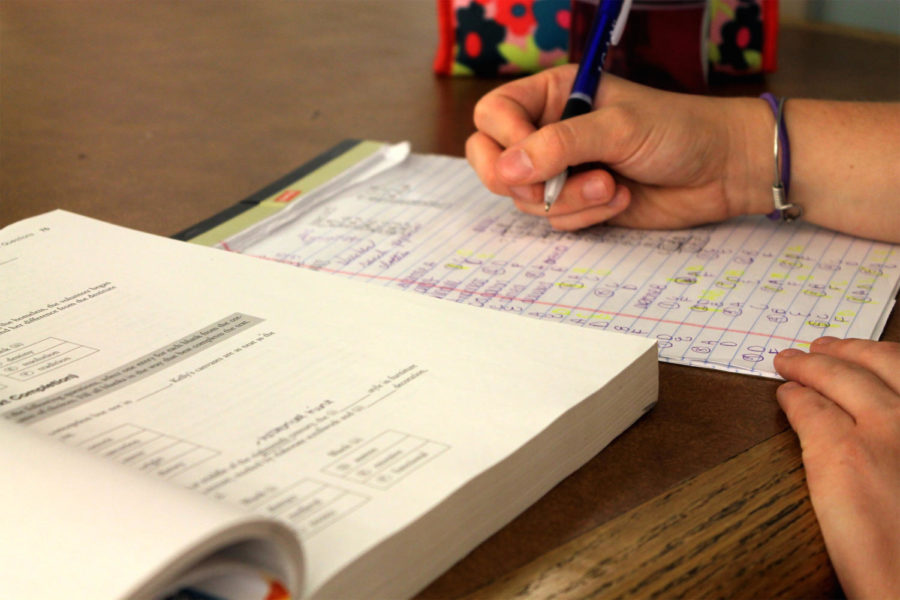Brain drain: Summer knowledge gap visible by students, professors
Photo: Riley Eveleth/Iowa State Daily
During the summer, some students may experience a brain drain: Losing retention of knowledge and falling behind right off the bat.
August 28, 2013
Students are once again dusting off their cranium cobwebs and firing up their brains for the new school year.
For some students, it has been 113 days since encountering ISU classrooms, professors or tests and homework. While some managed to continue taking courses either at the university or online, others took time off from their learning habits.
Andrew McCrea, senior in journalism and mass communication, said his philosophy on the quantity of knowledge retained during the summer somewhat resides with professors.
“If they’re teaching you correctly, you should be invested enough in what you’re learning that you’ll want to practice it over the summer,” McCrea said.
From a educating perspective, Bob Corey, lecturer in English, said he sees a certain trait as students move through their years at the university level.
“There’s that sense of maturity,” Corey said. “When you’re a freshman, you’re just coming out of high school … but when you’re a junior or senior, that sense of maturity kicks in.”
Corey said there’s a less likelihood of knowledge drop-off once students are older, because classes and overall education become more important to them.
Continuity between certain classes was something Corey said professors struggle with. At the high school level, students are taking core classes that relate to each other from semester to semester.
However, when entering university level classes, it’s only in early freshmen, who haven’t found that sense of maturity or the sense of continuity it takes to retain knowledge.
While McCrea said he puts a lot of emphasis on students holding professors accountable in their teachings, he recognizes it isn’t always easy practicing certain physical skills during summer vacation.
“I feel that in some cases where the equipment is not available for you to practice your skills, like a chemistry lab, you can’t really use that over the summer,” McCrea said. “But, you should do supplemental learn to ease the transition.”
As students dive in to their first week of classes, Corey said he is foreseeing a way for students to bridge the brain drain gap.
“The emphasis and push is to continue your reading and continue being current in your field,” Corey said. “Especially for seniors getting ready to graduate, it’s important for them to read articles as they get ready to get into the workforce.”







